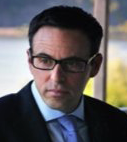 Credit Suisse and other European banks are trading at bargain-basement valuations, making them a solid buying opportunity. A recent tax-evasion investigation has damaged the Swiss bank’s reputation. But much of the negativity and related fines are priced into the stock price.
Credit Suisse and other European banks are trading at bargain-basement valuations, making them a solid buying opportunity. A recent tax-evasion investigation has damaged the Swiss bank’s reputation. But much of the negativity and related fines are priced into the stock price.
“Credit Suisse has one of the top private banking franchises in the world,” Morningstar analysts wrote in a note April 20. “Operating profitability is exceptional, with normalized margins around 40 percent.”
Fundamentals
The second-largest Swiss bank after UBS, Credit Suisse oversees about CHF 1.3 trillion, or $1.36 trillion, in assets. Its financial services run the gamut from investment banking, including trading, securities underwriting, and brokerage services, to private banking, including asset management. Investment banking makes up 50% of revenue while private banking accounts for 30%.
Credit Suisse is restructuring operations in Switzerland by laying off workers and expanding into emerging markets. Tidjane Thiam, who will become CEO in June 2015, reportedly may cut nearly 3,000 people or 15 percent of staff from the investment bank to save money. Thiam may cut 150 billion Swiss francs of assets from the bank's fixed income, commodities and currencies business to focus more on asset management and private banking and less on investment banking. Asset management and private banking are two times more profitable that other financial services.
Thiam brings a superb track record for growth as the CEO of Prudential. Credit Suisse shares rallied 5% the day the company announced Thiam was taking over the helm. Investors are betting that he will improve margins and further expand into Asia.
Credit Suisse saved CHF 3.5 billion in costs by the end of 2014 and aims to save an additional CHF 1.0 billion by the end of 2015, including cost reductions in private banking and investment banking. The company forecasts a CHF 300 million cut on 2014 pre-tax income, about 3 percent, from the Swiss franc strengthening and negative interest rates. However, additional cost savings of CHF 200 million targeted by the end of 2017 should limit the adverse impact.
“Credit Suisse continues to build its capital base and reduce risk-weighted assets and leverage,” wrote S&P Capital IQ in a stock report April 18. “We welcome Credit Suisse's moves to increase the contribution of its private bank where returns are less volatile and less capital intensive.”
If Credit Suisse continues with strong performance in its investment banking division, carries on with cost-cutting efforts, and stays the course with assets under management growth in emerging markets, I believe it can begin trading in earnings multiples closer to its peer UBS, which trades at 12.6 times forward earnings.
UBS analysts forecast Credit Suisse’s assets under management will grow 7 percent this year. Rising assets under management in the face of strong equity markets and currency moves offsets earnings challenges from ultra-low interest rates and regulatory uncertainty, they say.
“Decent and in many cases double-digit earnings growth, high and increasing cash returns and excess capital offering strategic flexibility are other positive elements in the investment case,” UBS analysts wrote in an equity report April 7. “High profit growth levels and high cash yields in a low-yield environment remain highly attractive features.”
Thomson Reuters forecasts Credit Suisse’s earnings per share will grow 5.4 percent year over year in 2015 to $2.50 a share. Earnings for 2016 are expected to rise 6 percent to $2.65 a share. 2017 earnings per share is projected to reach $3.30, up 25 perent year over year.
The 30% jump in the Swiss franc in January resulted in a 3 percent hit to the bottom line -- not nearly as much as some analysts speculated. Many feared Credit Suisse would have to its dividend, but it’s maintaining a 3.3 percent annual payout.
Valuations
CS has strong upside potential in the coming years. It trades at a discount to both its peers and the European stock market. It trades at a forward price-to-earnings ratio of 11. iShares MSCI Europe Financials ETF (EUFN) trades a higher forward P/E of nearly 13 while Vanguard FTSE Europe ETF (VGK) trades at 17 times forward earnings.
CS trades below book value at 0.9 times book and 1.6 times sales. EUFN trades at slightly cheaper valuations on these measures with a P/B of 0.99 and P/S of 1.2. VGK sports a P/B of 1.8 and P/S of 1.2.
Investment Risks
Credit Suisse paid a total of $3.7 billion to settle charges on selling bad mortgages to Fannie Mae and Freddie Mac. New York State is suing it for $10 billion for selling toxic mortgage-backed securities before the 2008 crisis. The biggest risk to Credit Suisse lies in its case against New York State. Although the stock has priced in much of the costs, an unfavorable decision could cripple it further.
Credit Suisse gets more than half of its revenue from investment banking in which profits are very volatile. It, like many of its peers, had massive legal and settlement expenses stemming from the financial crisis. In May 2014, it settled charges for helping U.S. clients evade taxes for CHF 2.5 billion. Regulators could require banks to hold more capital or enact new regulations that hurts profits.
“This investment bank is a double-edge sword,” Erin Davis, senior equity analyst at Morningstar, wrote in a client note Jan. 23. “Higher capital requirements have made investment banking a less attractive business than it was before the crisis, yet employee compensation remains sky-high, so there isn't much left to distribute to shareholders.”
The Volcker Rule, which restricts banks from making some types of speculative investments, will likely reduce Credit Suisse’s proprietary trading revenue.
Philip J. DeAngelo, is the owner and managing director of Focused Wealth Management, an SEC registered investment advisor, with $420 million in assets under management in Highland, N.Y.